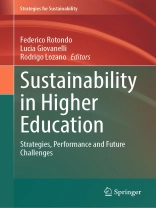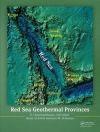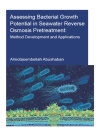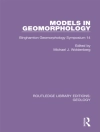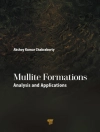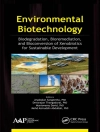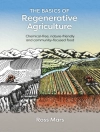This contributed volume addresses the issue of how higher education institutions can systematically reorient themselves to help society become more sustainable. In particular, a strategic management approach is used to overcome the fragmentation of sustainability initiatives increasingly conducted by higher education institutions worldwide. In this book, eminent scholars in the field of sustainability in higher education combine their different backgrounds to propose conceptual frameworks for interpreting and measuring sustainability integration in higher education institutions. The chapters contained herein explore which processes and management tools should be used, as well the challenges to be faced, to make sustainable innovation effective. The cases present in this volume offer a guide for higher education institution management to lead the sustainability transition.
İçerik tablosu
Part I Building a more sustainable world through more sustainable Higher Education Institutions.- 1 Designing a more sustainable Higher Education Institution.- 2 Nurturing a caring university.- 3 Higher education and Sustainable Development Goals in the constitutional framework.- 4 Driving the systemic transformation of higher education institutions towards sustainability.- 5 The role of Higher Education Institutions in meeting SDG 9.- Part II Management and Assessment in HESD.- 6 Empowering deans for sustainability transformations at academic departments.- 7 Understanding the moderating effect of governance functions on the impact of communication on sustainability implementation performance in higher education institutions.- 8 Sustainability in the strategic planning of the Italian higher education system.- 9 The disclosure of SDG performance.- 10 Learning outcomes in the context of Education for Sustainability.- 11 Assessment frameworks for promoting sustainable development in Educational Institutions.- 12 Sustainability rankings of universities.- Part III Lessons from significant experiences across the world.- 13 Integrating sustainability competences into degree programmes in higher education to educate experts who steer the world towards sustainability.- 14 Sustainability in higher education institutions in Latin America and the Caribbean.- 15 On the sense and nonsense of assessing sustainability in course content.- 16 The key role of universities in sustainable development.- 17 Sustainable islands.
Yazar hakkında
Federico Rotondo obtained his Ph D in Business Administration and Accounting in 2007 at the University of Pisa, Italy. From December 2008 to October 2018, he was an Assistant Professor at the Department of Humanities and Social Sciences of the University of Sassari, Italy. Since November 2018, he has been an Associate Professor in the same Department. He has published books and articles in refereed journals and he has many conference presentations. His research interests involve public management, healthcare management, higher education management, governance networks, performance measurement, tourism management, and sustainability in higher education.
Lucia Giovanelli obtained her Ph D in Business Administration and Accounting in 1992 at the University of Pisa. She is Full Professor of Business Administration and Accounting in the Department of Economics and Business at the University of Sassari (Italy). She had been the Director of the same Department. She has published books and articles in refereed journals and she has many conference presentations. Her research interests include public management and accounting, healthcare management, higher education management and tourism management, and sustainability in higher education.
Rodrigo Lozano is an expert on sustainability and sustainable organisations. For more than twenty years, he has been working on topics such as education for sustainable development, corporate sustainability, circular economy, green chemistry, food waste, sustainable public procurement, assessment and reporting and change management. He has carried out research in theory and practice on higher education institutions, corporations, civil society organisations, and public sector organisations. He has had a variety of roles in academia and the private sector. He has considerable international and editorial experience.
